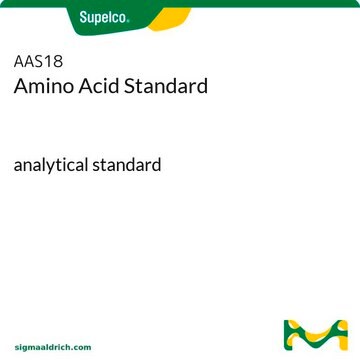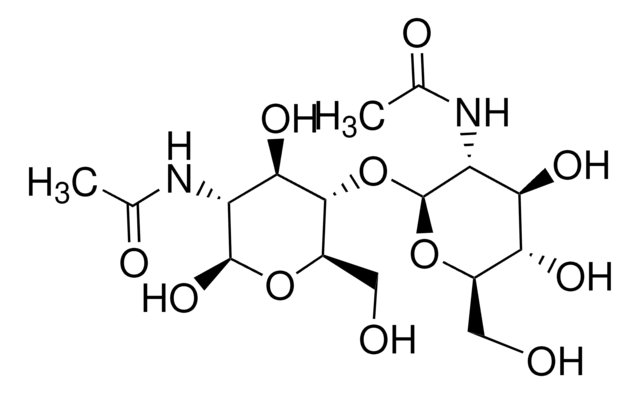A3007
N-Acetylmuramic acid
≥98% (TLC)
Synonym(s):
(R)-2-(Acetylamino)-3-O-(1-carboxyethyl)-2-deoxy-D-glucose, 2-Acetamido-2-deoxy-3-O-(D-1-carboxyethyl)-D-glucopyranose, MurNAc, NAMA
About This Item
Recommended Products
biological source
synthetic
Assay
≥98% (TLC)
form
powder
technique(s)
thin layer chromatography (TLC): suitable
impurities
≤1 mol/mol methanol
color
white
mp
125 °C ((257 °F ))
solubility
water: 50 mg/mL, clear, colorless
storage temp.
2-8°C
SMILES string
CC(O[C@H]1[C@H](O)[C@@H](CO)OC(O)[C@@H]1NC(C)=O)C(O)=O
InChI
1S/C11H19NO8/c1-5(11(18)19)20-10(9(17)8(16)4-14)7(3-13)12-6(2)15/h3,5,7-10,14,16-17H,4H2,1-2H3,(H,12,15)(H,18,19)/t5-,7+,8-,9-,10-/m1/s1
InChI key
SOARVSUSWULNDI-TVVSKHENSA-N
Looking for similar products? Visit Product Comparison Guide
Application
Packaging
Other Notes
Signal Word
Warning
Hazard Statements
Precautionary Statements
Hazard Classifications
Acute Tox. 4 Oral - STOT SE 2
Target Organs
Eyes,Central nervous system
Storage Class Code
6.1C - Combustible acute toxic Cat.3 / toxic compounds or compounds which causing chronic effects
WGK
WGK 3
Flash Point(F)
Not applicable
Flash Point(C)
Not applicable
Personal Protective Equipment
Certificates of Analysis (COA)
Search for Certificates of Analysis (COA) by entering the products Lot/Batch Number. Lot and Batch Numbers can be found on a product’s label following the words ‘Lot’ or ‘Batch’.
Already Own This Product?
Find documentation for the products that you have recently purchased in the Document Library.
Customers Also Viewed
Our team of scientists has experience in all areas of research including Life Science, Material Science, Chemical Synthesis, Chromatography, Analytical and many others.
Contact Technical Service












